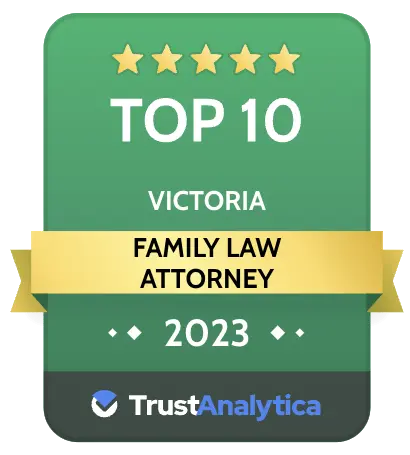Discover more. If your divorce is inevitable, choose the BETTER Path: join our newsletter for supportive, resolution-focused information!
Divorcing with Domestic Violence In BC
- Home
- Where to Start
- Domestic Violence
Domestic Violence and Coercive Control
Domestic violence is a painful reality that affects individuals from all walks of life—regardless of gender, socioeconomic status, ethnicity, or background. It's not just about physical harm; domestic violence can take many forms, including emotional, psychological, financial, and sexual abuse. If you are concerned for your safety or the safety of your children, the first and most crucial step is to ensure you’re in a safe environment.
Below, we’ll walk through what domestic violence is, what coercive control looks like, and the steps you can take to protect yourself and find legal support if you are facing separation or divorce in BC.
VIDEO: Understanding Domestic Violence in BC
Useful Related Pages
Recognizing Domestic Violence
Domestic violence is more than an occasional argument or outburst; it often involves a repeated pattern of behaviour designed to control, intimidate, or harm. Here are some common forms it can take:
- Physical abuse: Hitting, pushing, or any form of physical harm.
- Emotional and psychological abuse: Name-calling, belittling, or actions aimed at lowering your self-esteem.
- Financial abuse: Restricting your access to money, forcing dependency, or controlling financial decisions.
- Sexual abuse: Forcing or pressuring unwanted sexual acts.
- Child abuse: Using children to control or manipulate you or threatening to take them away.
What is Coercive Control?
When people think of domestic violence, they might imagine physical harm. However, domestic violence can be much more insidious. Many victims experience something more subtle yet equally (and sometimes longer lasting damaging)—coercive control. This is a persistent pattern of controlling behaviour that aims to strip you of your autonomy, isolate you from support, and make you feel trapped. It can leave deep emotional scars without the visible marks of physical abuse.
Signs of Coercive Control:
- Isolation and Monitoring: If your partner restricts contact with friends or family, monitors your phone or social media, or insists on accompanying you everywhere, this could be coercive control.
- Threats and Intimidation: Threatening harm to you, your children, or your pets; using intimidating body language; or blocking you from leaving a room.
- Emotional Abuse: Frequent humiliation, insults, gaslighting, and manipulative guilt tactics.
- Control Over Finances: Restricting your access to money, withholding funds, or preventing you from working to keep you financially dependent.
- Monitoring Daily Life: Tracking your movements with a GPS, dictating what you wear or who you interact with.
- Sexual Coercion: Forcing or pressuring you into unwanted sexual acts.
- Manipulation of Children: Threatening to take your kids away or using them to control you.
If you recognize these patterns in your relationship, you may be experiencing coercive control, which is a serious form of domestic violence. Recognizing it is the first step toward taking back control of your life.
Steps to Take if You’re Experiencing Domestic Violence in BC
- Ensure Immediate Safety:
First and foremost, make sure you and your children are safe. This may involve contacting a trusted friend, family member, or a domestic violence shelter. - Consider Reporting the Abuse:
Depending on your situation, you may want to report the matter to the police to document the abuse and ensure legal protection. - Seek Legal Advice:
Consult with a lawyer who understands domestic violence to discuss your rights and options for protecting yourself and your family. - Access Counselling and Support:
Talking to a counsellor, therapist, or support group specializing in family violence can be immensely helpful. They can offer emotional support and guidance as you navigate this difficult time.
Case Study: How Family Violence can be very sneaky. Read about Lorna from Abbotsford, B.C.
As we have already said, when we think of domestic violence, or family violence, we imagine someone being physically violent. However this isn't already the case and I am reminded of a client we represented in Abbotsford, British Columbia. We will call her Lorna.
Lorna told us that she was not sure how it had happened to her. She studied gender studies at the University of British Columbia (UBC) during her undergraduate studies and earned a marketing degree from Simon Fraser University (SFU). She met Andrew through some friends at a summer barbecue. Andrew was good-looking, charming, funny, and a real gentleman.
Lorna and Andrew hit it off right away. Lorna had just finished her Master’s Degree and was starting an exciting new job. Andrew had a great career in sales. He was stable and financially successful, Andrew was everything that Lorna was looking for.
They started dating, and within weeks, things were already serious between them. They whispered and texted “I love you” to one another multiple times per day. Of course, if she was tied up in a meeting and did not text Andrew back right away, he would start to worry about her. She started to carry her phone with her everywhere and continuously check it in case Andrew texted as she didn’t want to worry him.
Lorna and Andrew moved in with one another a few months after meeting. It was a dream come true. They started talking about marriage and how cute their children were going to be.
Of course, Andrew worked long hours. Andrew didn’t really like it when Lorna did the same. He wanted her to know he would provide for them and that she needed her “beauty” sleep. She needed her rest. So, even if Andrew worked late, he encouraged Lorna to spend time at home “relaxing.”
When Andrew was away at work, sometimes Lorna had her friend, Natasha over for a glass of wine and a movie. Other times, she would meet friends out at Brown’s Social House for wine and chats. When Andrew learned of this, he became silent and would give her the cold shoulder for a day or two. Andrew never said she could not see her friends. He would never do that. He is not that kind of person, thought Lorna. He was just being loving and concerned for her well-being.
Also, they were saving for a house, and Andrew wanted to ensure that they were not spending money frivolously. She was so glad that Andrew was financially savvy. In fact, Andrew suggested they have a joint account so that her pay cheques could go into it. Andrew also deposited funds into that joint account, but he had a separate account as well because of business expenses and entertaining clients which he had to do several evenings per week.
Lorna was so pleased to introduce Andrew to her family and she did so within weeks of dating. After the first couple of family gatherings, Andrew pointed out how irritating Lorna’s Mom and sister were. Andrew was always uncharacteristically quiet at Lorna’s family gatherings. Although he didn’t say she should not go, if she went without him, she would come home to a cool reception by Andrew. She realized it was probably better to avoid those gatherings and spend time with Andrew in case he was able to come home and spend time with her.
A couple of years went by.
It was a Saturday morning. Andrew had been out late the night before with clients. He had been encouraging Lorna to get up and do her workouts early because it was important she stay in shape. Lorna was feeling like she wanted to sleep in, but knew it was better to get up and at it and have come back from the gym before Andrew was awake. That way, she could give him coffee, and they could cuddle before their day began. It used to be such a great part of their week.
Lorna sat on the edge of their bed and wondered how her life had gotten to this place. She glanced at her phone, which she put away quickly. She didn’t want the glare to disturb Andrew’s sleep. She missed hanging out with her girlfriends. Her family did not understand why she was not spending time with them. She assured them that it was because work was so busy.
Lorna gave her life circumstances some serious thought. She was 28 years old. She and Andrew would be starting their family soon. Yet, something was tugging at her. Something did not feel right for Lorna.
Lorna didn’t text her friends or family much anymore other than to respond. She knew that Andrew would be checking her texts and phone call history and would ask her pointed questions about all of her communications. The joint bank account had become a source of tension between them. Andrew monitored all of Lorna’s spending, even if she bought a grande latte at Starbucks. Andrew suggested he put Lorna on a budget so she could learn the value of money.
When they socialized with friends (all Andrew’s friends now, as hers were tedious and boring, he said), Andrew made jokes about her not being the “sharpest tool in the shed” and said other things that also didn’t feel good to Lorna. When she mentioned it to him, she said she didn’t have a sense of humour and was becoming irritable, just like her mom and sister.
Another year went by, and by then, Andrew had Lorna on a strict budget. He always had her whereabouts monitored by GPS. “It's for your safety,” he said.
He became more and more controlling. He began mentioning what she ate, what groceries were purchased, and when she was to get up and go to bed.
Lorna felt empty and lonely all the time. She could not understand why. Andrew was her “knight in shining armour,” and she wondered why she could not appreciate him for who he was.
It was when Andrew was out of town at a conference for a few days that Lorna risked it and met up with her best friend for lunch. When she shared with her bestie that she needed to figure out how to pay for her lunch without Andrew finding out she had been out that the penny dropped for Lorna.
She went to their regional library, the Fraser Valley Regional Library and used one of their computers (knowing Andrew would check her search history when he got home). She Googled “What does it mean if your partner monitors everything you spend?” When the following answer popped up, Lorna decided to investigate more about financial abuse:
It's normal to occasionally argue about bills or how money is being spent. But when your partner gets controlling about money, or prevents you from making money of your own, this can be a sign of financial abuse.
Lorna spent the rest of the weekend learning about coercive control and realized she was in that kind of coercive-controlling relationship. She knew it was time to get out. That is when she came to see us at Pathway.
The good news for Lorna is that she was able to get out of the financial entanglement fairly easily, as she and Andrew had only just purchased their condo, and they did not have kids yet.
Even though Andrew told her everything was her fault and she did not know what was good for her, she broke off the relationship. Upon realizing the relationship was over, Andrew was very angry.
Despite his anger, Pathway Legal assisted by resolving Lorna’s legal matter using mediation/arbitration. For the benefit of both Andrew and Lorna (and their now solely owned bank accounts), we were able to avoid court.
Legal Rights in BC and Family Relationships
The law often aims to balance children’s relationships with both parents. However, if a parent has engaged in abusive behaviour, they may be required to take training and learn new skills to maintain an appropriate relationship with their children. Legal protections exist to ensure your safety, but it’s important to seek expert advice for guidance specific to your situation.Finding the Support You Deserve
At Pathway Legal, we’re here to help you navigate the complexities of domestic violence and coercive control. We understand that this journey is deeply personal and challenging, and our team is committed to providing the support, guidance, and legal expertise you need. You don’t have to face this alone—let us help guide you and your family toward a safe and empowering new beginning.
Remember: No one deserves to live in fear. Reaching out for help is the first step in reclaiming your safety and autonomy.









